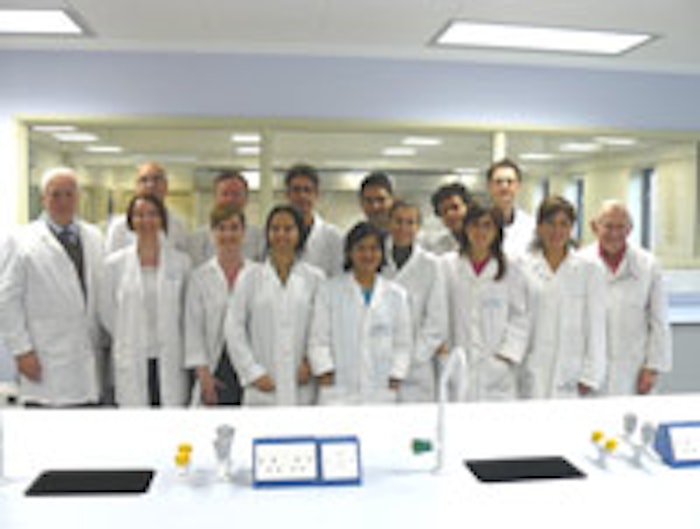
The British Society of Flavourists (BSF) recently held its seventh training course for potential creative flavorists, in association with the University of Reading. The three-week program took place at the university’s School of Biosciences and was attended by 12 trainee flavorists from Germany, Peru, India, Vietnam, Sweden, Austria, Italy and Greece.
Program Details
Week 1: The training began with a focus on tasting, smelling and understanding the scope of application of about 100 important raw materials used in flavor creation. The intent of this exercise was to provide the delegates with an evaluation process for new raw materials; the delegates were later required to apply this knowledge to create simple flavorings. Apart from these practical sessions, lectures on flavor chemistry, biochemistry and flavor analysis also featured in the first week of the course.
Week 2: The second week of the course began with an emphasis on natural raw materials including essential oils, oleoresins and other extracts crucial to the flavor industry. Again, the session highlighted the practical application of these materials in flavor creation, particularly in conjunction with nature identical raw materials. In addition, this week included a visit to and presentation by a flavor company specializing in the manufacture of English essential oils and extracts. The visit comprised a factory tour to demonstrate and review various methods of physical extraction of vegetable source materials, such as steam distillation, high-vacuum distillation, vacuum fractionation and liquid and supercritical CO2 extraction. The other highlights of the second week were a two-day session on the creation, production and evaluation of modern savory flavors, and lectures on flavor legislation, process flavor chemistry, delivery systems and practical flavor processing.
Week 3: During the third week, the delegates continued to create flavorings using the raw materials they had previously evaluated. As the course advanced, the delegates’ flavor formulating confidence and skills improved, and their creations became increasingly sophisticated. The entire course—particularly weeks two and three—emphasized flavor creation, followed by an evaluation of the sensory characteristics of the creations, under the expert guidance of flavorists from the BSF.
The course ended with a written test and a demonstration by candidates of two of their creations in an easy-to-prepare application. All 12 candidates passed with flying colors and received certificates from School of Food Biosciences, and BSF memberships.
Course Details for 2010
Next year's course is scheduled May 4, 2010, with a candidate limit of 10 participants.
Address correspondence for registration: Don Mottram, Reading University; tel: 44-0118-378-8712; fax 44-0118-931-0080; email: [email protected]; Jack Knights, tel: 44-01604-585390; email: [email protected]
Acknowledgments
BSF is thankful to all the lecturers participating in the training and to Richard Clark (former chief flavorist, Givaudan UK) for his assistance throughout the course. The association expresses gratitude to the companies who provided raw material samples and other teaching aids and to BSF, and to IFEAT for its financial support for the course.










